Policies, procedures and contractural clauses
S-2This is large tooltip textRead more
Relevant policies to manage material impacts for value chain workers:
These policies are aligned with internationally recognized human rights and follow United Nations Guiding Principles on Business and Human Rights UNGPs.
We refer to the MDR-P (p.30) section of this report for further details.

Governance on sustainability
Operational responsibility for ensuring the engagement takes place and that its outcomes inform Gunvor’s approach, are held by the Health, Safety, Environment, Human rights and Communities (“HSEC Committee”) Committee which is led up by the Chairman, Chief Operating Officer. All actionable insights taken onboard by the Global Head of Sustainability and Ethics and the Chief Legal Officer.
Description of types of value chain workers subject to IROs
SBM-3This is large tooltip textRead more
We have identified the following areas as being most at risk for value chain workers:
As per commitments to United Nations Guiding Principles on Business and Human Rights, Gunvor regularly reviews its operations and activities to understand specific risks and impacts depending on commodities traded and geographical origin.
General approach to value chain workers
Risk and impact identification
Gunvor regularly assesses human rights risks within its activities and supply chain. As described in our previous reports, we have conducted child labor risk mapping in 2023 with our partner twentyfifty, and human rights risks mapping in 2023, which covers a wider array of human rights risks. This allows us to identify commodities and geographies at a higher risk of human rights impacts and to prioritise higher risk areas.
KYC checks
Detection of risks and impacts regarding value chain workers is embedded within compliance checks. All counterparties are screened against human rights risks including those covered in the International Labour Organisation Declaration on Fundamental Principles and Rights at Work. Adverse media checks are conducted daily on counterparties and reviewed at regular intervals by KYC and sustainability teams.
Suppliers’ assessments
In line with its commitment to the banks, Gunvor is deploying a supplier’ assessment project, together with the desks, and our external consultant twentyfifty, and based on risks identified which are commodity and geography related. In 2024, focus has been put on biofuel (Palm Oil Mill Effluent supply chain, which has been identified as potential risk of child labor) and metals and minerals.
These assessments allow for a deep dive into the commodities and geographical context as well as the supplier’s internal processes. We get the perspective of workers in the value chain through research, expert literature, and support from our external consultant. When further expertise is required, especially for vulnerable groups of rightsholders, we aim to reach out as locally as possible through actors on the ground such as NGOs, unions or local consultants.
Child labor risks in supply chain
In line with Swiss ordinance on child labour due diligence, we perform regular monitoring of child labour risks in our supply chain.
CASE STUDY
Child Labour in Colombia

In 2022, Gunvor conducted a child labor risk mapping exercise across our operations with the assistance of our external human rights consultant. This process helped identify several areas that required special attention, including our road transportation operations in Colombia.
Gunvor’s Colombian operations contract with companies specializing in the transportation of hydrocarbons, which in turn directly hire the drivers who transport oil in trucks; the risk mapping conducted on the various Colombian routes identified the presence of numerous cleaning stations where these trucks are washed. It revealed that children sometimes clean these trucks, which may contain hazardous materials that pose a health risk to children. As indicated in the ILO Conventions, this situation belongs to the worst forms of child labour, as it involves children under the age of 18 handling hazardous substances, as well as a general aspect of school dropout for many of these children.
In response to this situation, the HSEC (Sustainability) team in Colombia is working closely with the various transport companies to address this risk. To this end, they have incorporated several criteria to evaluate compliance with human rights and social responsibility aspects into their auditing processes and have conducted awareness-raising sessions for the companies.
Similarly, inspired by Gunvor, some of the transport companies have taken the initiative to establish a charitable foundation in collaboration with local organizations focused on the fight against child labor, school dropouts and environmental protection. Their efforts began with the identification of communities affected by transportation routes and where children were observed working to clean trucks; with the creation of the Foundation, they seek to invest in the needs of the regions that will significantly improve the quality of life for children as well as to work with local communities to find alternative solutions.
In the immediate future, the Foundation’s actions will be aimed at demonstrating its commitment to sustainable development and the prevention of child labor. A series of activities are also planned to generate income to fund programs and projects that directly benefit children and prevent child labor in the areas of influence, providing economic assistance, food, education, health, and other essential services.
CASE STUDY
Palm Oil Mill Effluent (POME)

Gunvor trades palm oil mill effluent, a waste of palm oil, in line with the EU Green Deal. The commodities and geographies from where the product is purchased present a high risk of child and forced labor. To that end, the Company works with its suppliers to understand how they ensure that the POME oil sourced is exempt from such violations. This means increasing visibility on the higher supply chain, especially on palm oil plantations. In 2025, we plan on continuing that engagement with suppliers and systematizing our approach to ensure higher traceability of products and respect human rights standards.
Metals and minerals desks follow a strict KYC process, with escalation to sustainability teams. Gunvor works existing certification schemes, perform sustainability reviews for all new counterparties. Based on their level of risk, and the type and brand of metal purchased will trigger further engagement and checks. We also ensure that the markets we purchase from have specific standards, like the London Metals Exchange, and follow the OECD Due Diligence Guidance for Responsible Supply Chain.

Oil palm fruits waiting to be processed in palm oil mill
Shipping
As presented in the 2023 Sustainability Report, seafarers have been highlighted as a particularly vulnerable population, especially since Covid-19. Across the company’s shipping activities are divided in three main types:
We have no technical management activities, and in each of these situations, our contractual/legal obligations differ as well as our visibility on risks related to seafarers’ rights.
In bareboat chartering, the technical manager we contract will manage the crew. In this case, we have significant leverage to select a technical manager that takes seafarers’ rights into account.
In shareholding, while this is not directly one of our prerogatives, we can easily interact and assess our partner who oversees the technical management of the vessel. We have done that in 2023 as part of our KPI to assess joint ventures. During these assessments, we review practices of our partner, provide recommendations and share the Seafarers’ Code of Conduct (developed by Suissenegoce, the Swiss Commodity Trading Association and the Institute for Human Rights and Business).
Our main shipping activity lies with time-chartering, where we hire a vessel for a length of time. The shipowner has the responsibility to handle the technical management (sometimes, it is a branch of their company, sometimes, they contract a technical manager). Structure of contracts renders the visibility of labor practice of technical managers difficult. The existing legal framework (Maritime Labour Convention with inspections) and information available through the safety ratings of vessels cannot suffice to cover all risks. We are therefore looking into time pressure implied by contracts, and especially the short time to load/unload the cargo, leading to risk of peaks in activities for crews.
Remedy
Currently, we have not identified impacts that we have caused or contributed to as per UNGP’s terminology on value chain workers. We have, however, identified impacts within our supply chain that we are indirectly linked to.
Our suppliers’ assessments include a focus on access to remedy, ensuring that our suppliers provide a channel for complaints that respects the criteria set out in the UNGPs.
Gunvor also has available a grievance channel or whistleblowing line. While its primary goal is internal, it is publicly available and presents guarantees of confidentiality and non-retaliation.
